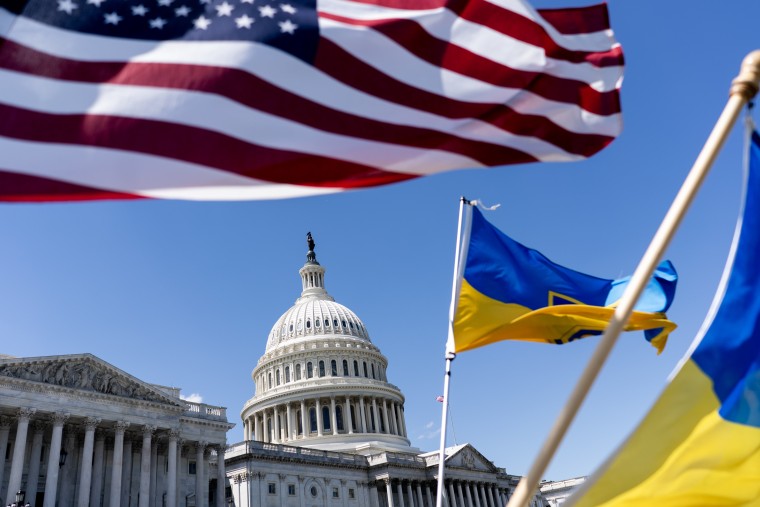U.N. Declares March 15 ‘International Day to Combat Islamophobia’
The United Nations General Assembly on Tuesday adopted a resolution to declare March 15 the “International Day to Combat Islamophobia.”
Ironically, the resolution was proposed by the Organization of Islamic Cooperation (OIC) and Pakistan, which supports China’s campaign of genocide and slavery against the Uyghur Muslims.
The U.N. resolution went out of its way to avoid mentioning China’s brutal persecution of millions of Muslims, instead focusing on “xenophobia, negative profiling, and stereotyping of Muslims.”
The OIC selected March 15 as the annual date for its resolution against Islamophobia in November 2020 because it is the date of the Christchurch mosque massacre in New Zealand. An Australian named Brenton Tarrant killed 44 people at the Al Noor mosque during Friday prayer services on March 15, 2019, then drove to another mosque and killed 7 more.
Tarrant was sentenced to life in prison without parole last year after pleading guilty to 51 counts of murder, 40 counts of attempted murder, and one count of terrorism.
Pakistan’s ambassador to the United Nations, Munir Akram, introduced the resolution by saying Islamophobia is a “reality” around the globe.
“Its manifestations – hate speech, discrimination, and violence against Muslims – are proliferating in several parts of the world,” he said.
“Such acts of discrimination, hostility and violence towards Muslims – individuals and communities – constitute grave violations of their human rights, and violate their freedom of religion and belief. They also cause great anguish within the Islamic world,” Akram said.
The U.N. resolution declares that terrorism “cannot and should not be associated with any religion, nationality, civilization, or ethnic group.”
Pakistani Prime Minister Imran Khan welcomed the resolution on Twitter:
I want to congratulate the Muslim Ummah today as our voice against the rising tide of Islamophobia has been heard & the UN has adopted a landmark resolution introduced by Pakistan, on behalf of OIC, designating 15 March as International Day to Combat Islamophobia.
— Imran Khan (@ImranKhanPTI) March 15, 2022
“Today, the U.N. has finally recognized the grave challenge confronting the world: of Islamophobia, respect for religious symbols and practices, and of curtailing systemic hate speech and discrimination against Muslims. The next challenge is to ensure implementation of this landmark resolution,” Khan said.
Khan has no such defiant words for his patrons in China. The $62 billion China-Pakistan Economic Corridor (CPEC) is a key element of China’s huge Belt and Road Initiative (BRI). That money evidently buys a great deal of silence where the Uyghurs are concerned, even though many Uyghur refugees live in Pakistan.
Pakistani Uyghurs complain the country has been “taken over” by China, to such a degree that living in Pakistan is increasingly unsafe for them. In May 2021, the Uyghur Human Rights Project (UHRP) accused the Pakistani government of complicity in China’s genocide, in part because Pakistan has been quick to arrest Uyghur imams and hand them over to the brutal Chinese government.
The UHRP’s Peter Irwin specifically rejected the notion that “Islamophobia” in the Western world is a greater concern than China’s mistreatment of the Uyghurs.
“Yes, there are cases of anti-Muslim actions being taken in the West as well – which countries like Pakistan are extremely vocal against. But when you compare the magnitude of what is going on in China, there really is no comparison,” Irwin said last summer.
The government of India objected to the U.N. resolution on Islamophobia on Tuesday, noting that other religions – including Hinduism, Buddhism, and Sikhism – face persecution around the world.
“India is proud that pluralism is at the core of our existence and we firmly believe in equal protection and promotion of all religions and faith. It is, therefore, unfortunate that word ‘pluralism’ finds no mention in the resolution and the sponsors have not found it fit to take on board our amendments to include the word ‘pluralism’ in the text for reasons best known to them,” complained India’s permanent representative to the U.N., TS Tirumurti.
“We hope that the resolution adopted today does not set a precedent which will lead to multiple resolutions on phobias based on selective religions and divide the United Nations into religious camps,” Tirumurti said.
The Indian representative noted the U.N. already proclaimed August 22 as a day to commemorate the victims of religious persecution, along with an International Day of Tolerance on November 16, with both observances “fully inclusive in nature.”
“We are concerned about elevating the phobia against one religion to the level of an international day, to the exclusion of all the others,” Tirumurti said.
Pakistani Foreign Minister Shah Mahmood Qureshi, on the other hand, applauded the U.N. resolution and suggested it was directed, in no small part, at India.
Qureshi said Islamophobia is “on vivid display in the Indian illegally occupied Jammu and Kashmir,” where it is “manifested in negative profiling by security agencies, stigmatization, deliberate vandalizing of Islamic symbols and holy sites, killings by cow vigilantes, discriminatory laws and policies, ban on hijab, attacks on mosques, pronouncements by far-right parties that call for expulsion and even ‘genocide’ of Muslims, anti-Muslim migrant bias, and attacks on the dignity of Muslim women.”
" Conservative News Daily does not always share or support the views and opinions expressed here; they are just those of the writer."





